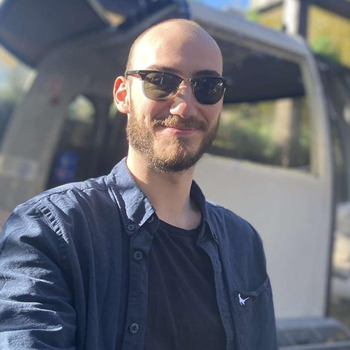Year 5 medical student, Joe discusses the new preference informed allocation system for prospective resident doctors and weighs up a couple of possible scenarios.
 “You mean you could be sent…down south?!?” she lamented with the horror reserved only for Scots faced with the prospect of a life spent south of the border.
“You mean you could be sent…down south?!?” she lamented with the horror reserved only for Scots faced with the prospect of a life spent south of the border.
“Yeah it’s a random allocation, we can be sent pretty much anywhere” I replied.
“Well that doesn’t seem very fair!”
I shrugged. “Maybe not. That’s just how it is now, I guess.”
The ‘fairness’ of the new preference informed allocation system for prospective resident doctors is certainly among the hot topics for Edi Medics shooting the breeze in the Chancellor’s café (and for small talk with midwives on a quiet night shift, it seems).
On first inspection, it certainly seems unfair that extra degrees, top marks in the Situational Judgement Test, and extra-curricular achievements now have no bearing on where we spend those tense first years of clinical practice. But, then again, the arguments for the change are grounded in equity and supposedly promise all doctors-to-be a better chance of their first choice location, and spread those top docs across the NHS deaneries more evenly, giving patients from Devon to Dumfries a more even and predictable healthcare service.
But what happens when you remove objective measures and leave it all down to chance? Have the powers that be even considered the ramifications? I mean, some of us may even resort to writing thinly veiled opinion pieces trying to influence our fellow med students’ choices, increasing our own chances of securing a job in a competitive deanery.
I think part of the frustration comes from the disparity between new doctors and our colleagues in the allied healthcare professions when it comes to securing jobs. An old school friend qualified as a physiotherapist a couple of years ago and secured a job at his local hospital – a 20 minute drive from home – through the NHS website. After he’d applied, interviewed, and purchased a presumably extortionate parking permit, he was away! Another, now a nurse, got her job at the Royal Infirmary the same way and is enjoying her first years of practice a stone’s throw from friends and family. Of course, medicine has its differences. The foundation programme involves close supervision and continuous learning before that last hurdle of full registration. But, surely, there must be a middle ground that gives final year medical students a little more autonomy in where they spend their early twenties.
As we ready ourselves to be flung to each corner of the British Isles, the one thing to keep your eyes on is the stats. It all comes down to the stats. The competition ratios of each potential destination are the crux of constructing a good ranking and maximising the chances of getting your top choice. Let’s compare a few…
London: 2.89
The cramped, noisy, polluted, and expensive capital city takes the crown as most competitive yet again. Near as makes no difference, three doctors vying for each job in the Big Smoke and I personally struggle to see why. Reliable public transport, music, art, restaurants, culture and neighbours your own age only count for so much, remember.
The North-West Midlands: 0.37
Wait, The North West Midlands? This has to be a mistake. Home to the Gladstone Pottery Museum, The Crewe Lyceum Theatre and Stafford castle. Now that sounds like somewhere I could see myself living out my twenties very comfortably. Or, maybe, you could?
It’s probably the exam stress talking – and in all honesty I could probably do with a couple of hours sleep and a break from the flashcards – but I think the best advice I can give is to embrace the chaos. While the anxiety of not knowing where we could end up for our first jobs understandably weighs on many of our minds, and there are plenty of very good reasons to feel cheated by a system that doesn’t seem to account for the stresses of starting a new career in an unfamiliar place, there is something strangely reassuring about someone else taking the reins.
I’ve personally decided to leave any research about my potential future home until after my allocation comes through. Only then will I start getting myself excited about where I’ve been sent. In a way that’s the beauty of random allocation. When you know there’s nothing you can do, what do you have left to worry about?
For now, back to Pass-med. Random allocation doesn’t make a blind bit of difference if I don’t make it through 5th year OSCEs, anyway.




Hi Joe,
Thank you for publishing this piece — it’s refreshingly honest and well-timed.
I adopted a similar “hands-off-the-reins” approach to allocation when I was in your shoes last year. It’s perfectly reasonable to focus on exams first (hope they all went well, by the way), but it’s also easy to overlook how important the allocation process is — especially when it feels like the power to shape our training has been taken out of our hands. Looking back now, I think medical students should be more aware of how the system behind securing a training job works — not just to prepare us better, but also to encourage future improvements.
I really appreciated your comparison with the training route of your allied health professional colleagues. Next year, you’ll get to experience just how different your path will be: you’ll be navigating three separate bodies — the UKFPO, NHS Education Scotland (hopefully), and your NHS trust. One allocates you, the other educates you, and the last employs you. It’s an unfamiliar structure, packed with tight deadlines and no shortage of admin tasks.
Compared to a “normal” job application, we’re given far less information (and time — the Oriel deadlines are brutal) to make some pretty significant decisions about our future. But I suppose medicine was never going to be a “normal” job — and that’s probably why we’re all here.
Thanks again for putting this out there — I think more open conversations like this will help demystify the process for those coming up behind us.
Cheers,
Julius